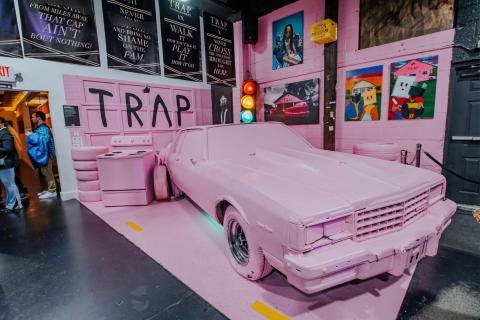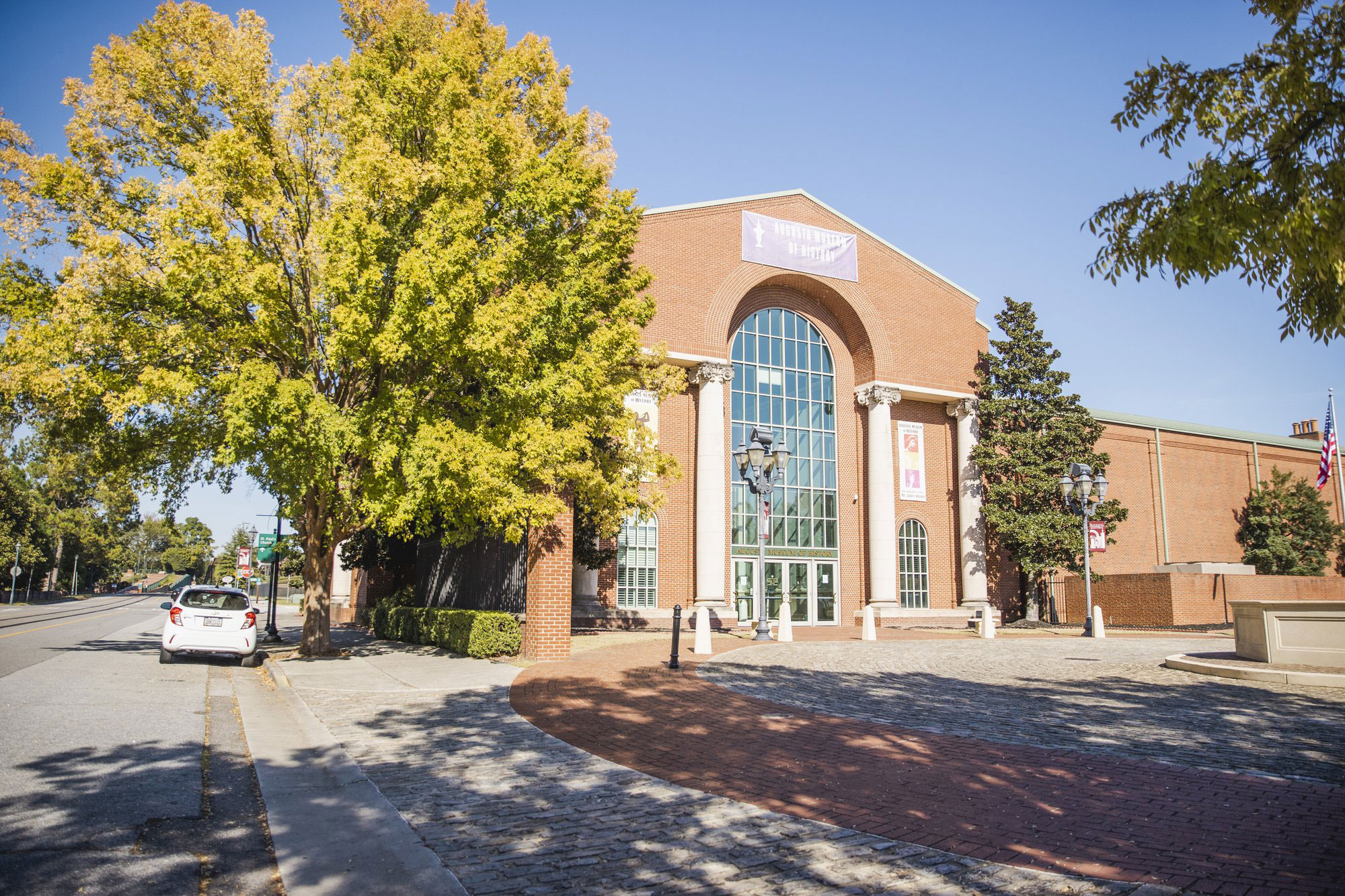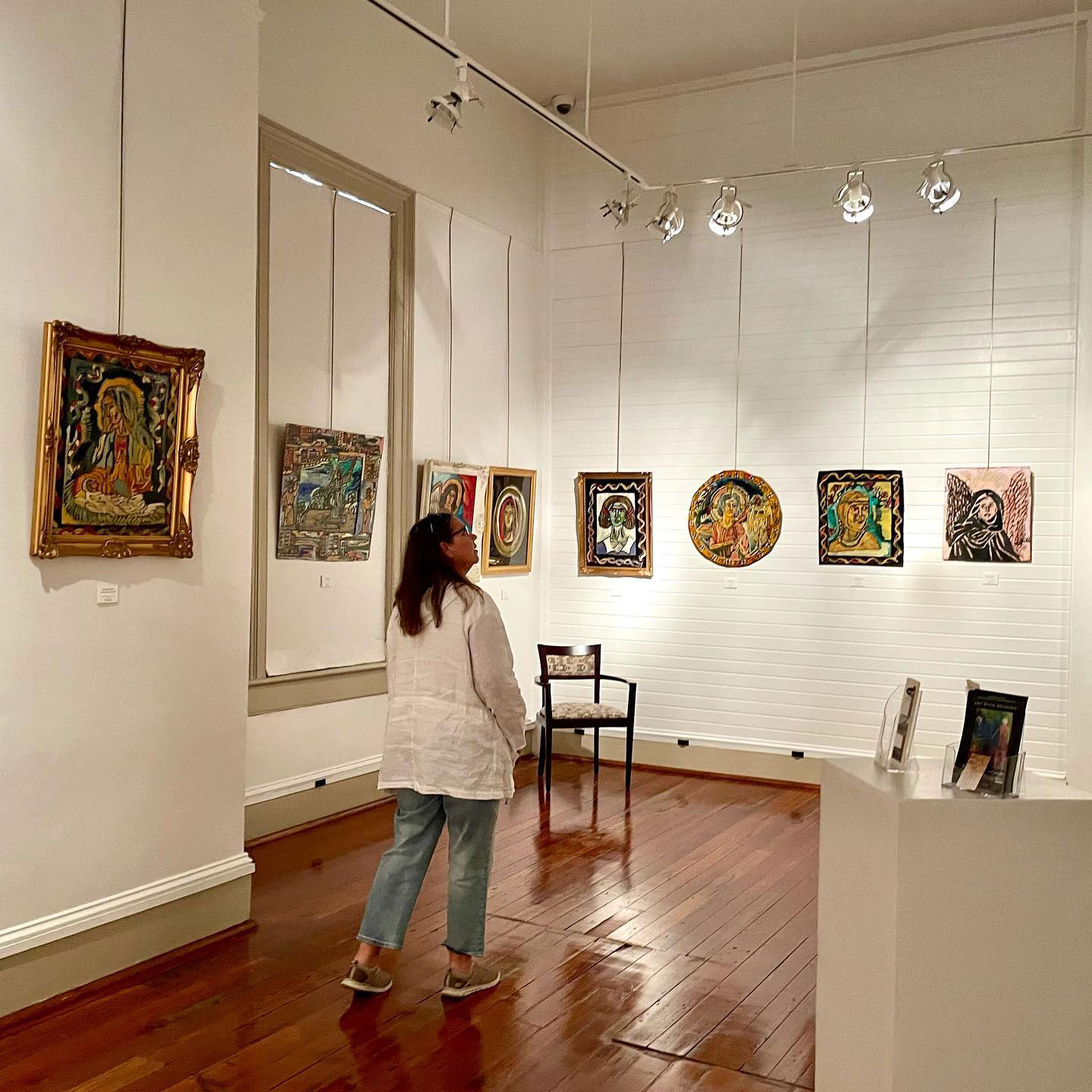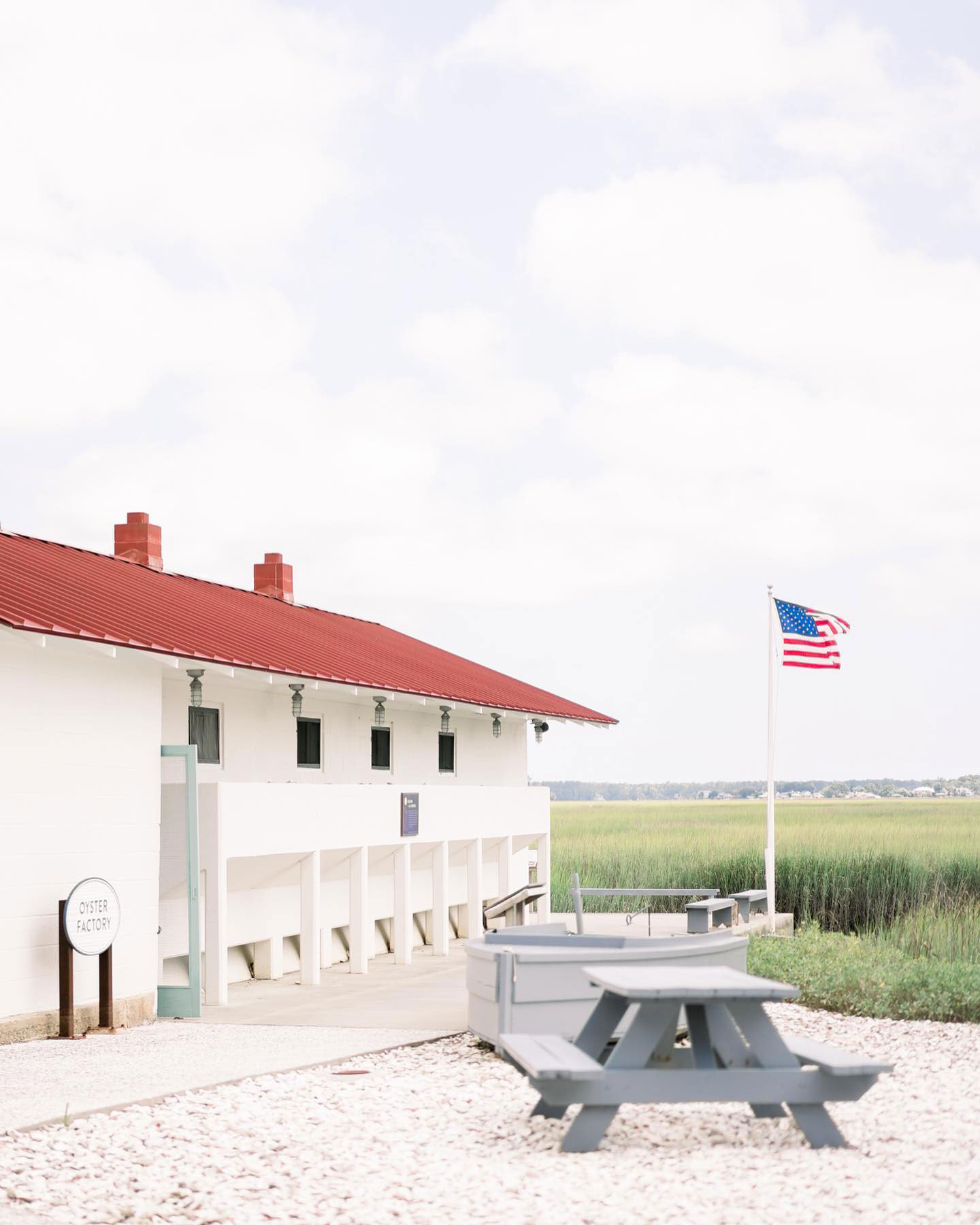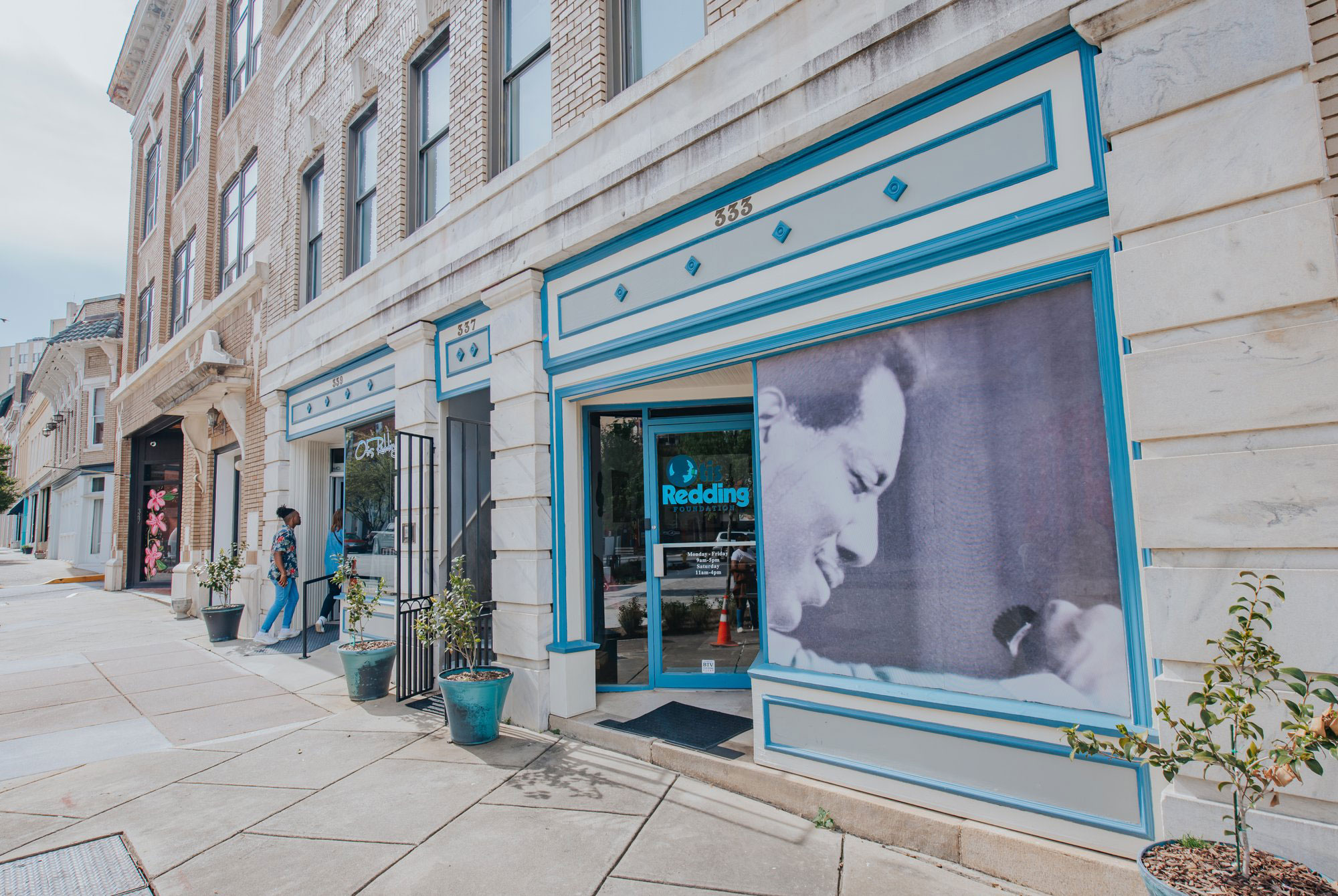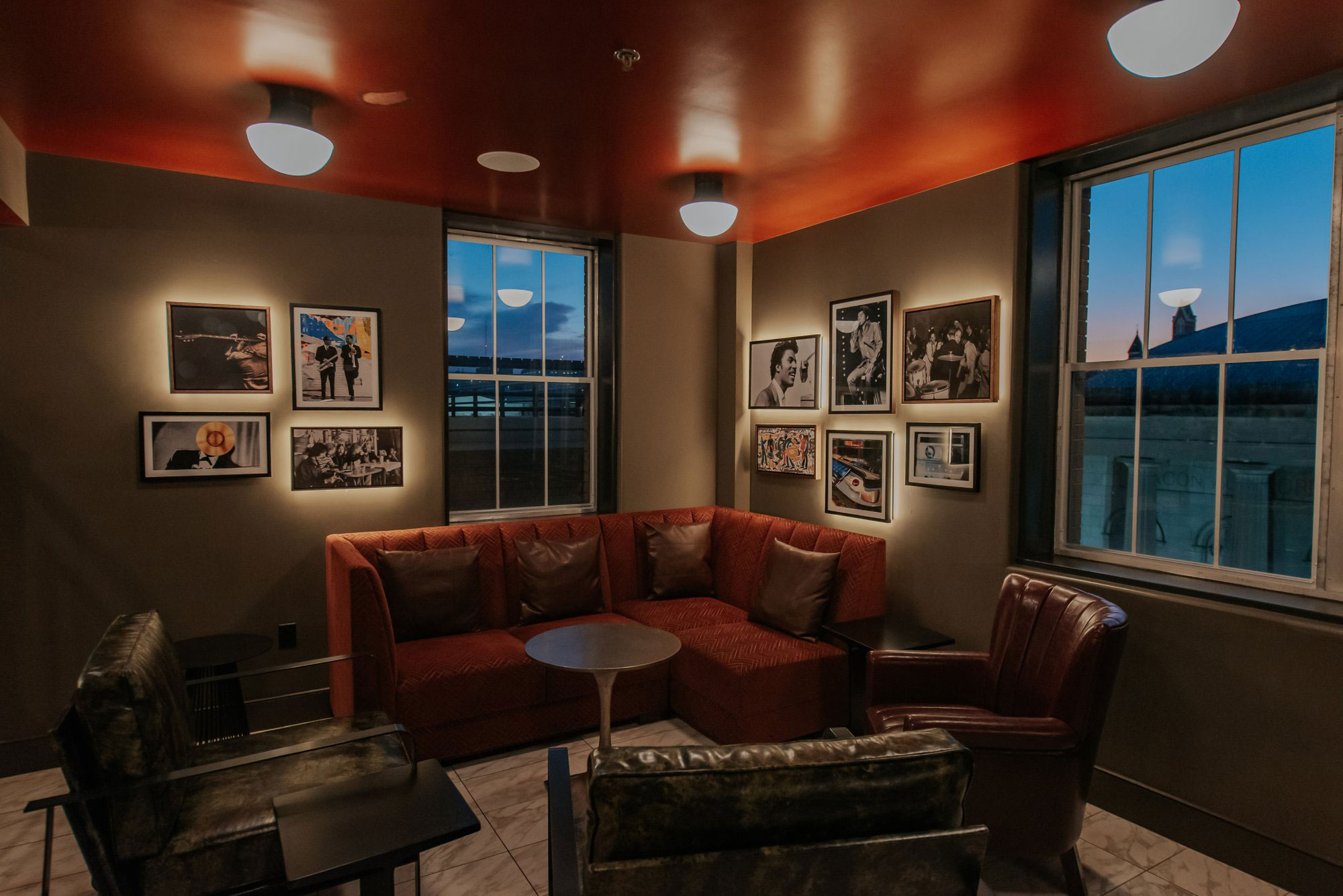Trap to the Future
Visit the Georgia cities that inspired the music of today.
Atlanta has long been recognized as an anchor and hub for Black American music. The latest genre to emerge from the depths of Atlanta and dominate the world? You already know: It’s trap music.
The roots of trap music grow deep in Georgia. And much like the kudzu that wraps itself around its oldest structures, the state’s musical legacy is intertwined with its culture.
The next time you’re visiting Georgia, look around, and you’ll see how this homegrown hip-hop sound and culture came to rule. Then get out there and experience how the music of today connects to it.
Below are four Georgia destinations where trap music holds a special place in the local lore. Visit these cities and experience the vibes.
Atlanta
If a stop through Hartsfield-Jackson Atlanta International Airport is in the cards, drop by Ludacris’ Chicken + Beer located on Concourse D, and grab a plate of crispy fried chicken and a flight of locally brewed beer from Monday Night Brewing, Athens-based Creature Comforts and others. It’s a perfect way to kick-start that “Welcome to Atlanta” energy.
Rapper T.I., who hails from Atlanta’s west side, coined the term “trap music” with his 2003 album of the same name (spelled Trap Muzik). It’s fitting that he also founded the Trap Music Museum, which features photos and authentic memorabilia from trap stars like 2 Chainz, Cardi B, and 21 Savage. Don’t miss Escape The Trap, the museum’s version of an escape room, and get advance tickets for the weekly Sip & Trap event, where you get a complimentary glass of Champagne at the door. Afterward, you can drop into T.I.’s other venture, Trap City Cafe, to grab a drink and watch the game.
See the College Park Skyhawks, the NBA G-League affiliate team partially owned by chart-topping hip-hop star 2 Chainz, play just south of Atlanta at the Gateway Center Arena. And if you want to grab a bite and have a cocktail afterward, 2 Chainz’s always-bustling and ever-expanding restaurant chain Esco Restaurant & Tapas Bar in Castleberry Hill is a trendy option with great entrees like lamb chops with chimichurri and diced tomatoes, and brunch dishes like lobster tails over creamy grits, and cocktails like the T.R.U. Story pineapple margarita.
Alongside the rest of the Dungeon Family collective, OutKast (Big Boi and Andre 3000) played an enormous role in putting Atlanta on the global rap map with their 1994 debut, Southernplayalisticadillacmuzik. Several albums and millions of records later, they’re still the unofficial champions of the city. Today, Big Boi lets fans stay overnight and soak up the vibes at The Dungeon, a house in southeast Atlanta whose basement was once a home recording studio where all their early classics were made. Rent out the house, which underwent a full renovation, on AirBnB. For a more traditional, centrally located hotel, book the Hampton Inn & Suites Atlanta Midtown, which is owned by RLJ Lodging Trust, a publicly traded hospitality investment group led by executive chairman Robert Johnson, founder of B.E.T.
Augusta
Augusta native and trap rapper TK Kravitz is another Georgian making waves on the hip-hop scene, and while Augusta’s sound is influenced by its sister city, Atlanta, it’s also steeped in its own rich history. Home of the legendary “Godfather of Soul” James Brown, Augusta’s music scene is defined in large part by the musical lane the pioneering bandleader paved.
Start the day at The Brunch House of Augusta, a Black-owned restaurant with amazing salmon croquettes, and jumbo biscuits topped with homemade turkey sausage gravy. And don’t miss the eclectic Jackie M’s & Son, where a mother and son duo make a mean Philly cheesesteak and delicious deep-fried “Soul Rolls,” which are like egg rolls but filled with melted cheese, sauteed onions, and your choice of meat, from sirloin steak to spicy jerk chicken.
At the Augusta Museum of History, gaze upon James Brown’s cape at the museum’s signature exhibition, and if you really want to get funky, head to the James Brown Journey, a walking tour located mostly downtown that pays homage to the late soul star. Among the stops on the tour are The Bell Auditorium, the Imperial Theatre, Brown’s childhood home, Mother Trinity CME Church, and the Soul Bar.
Alternatively, there’s Bike Bike Baby’s guided Soul Tour for cyclists, which ends with a photo op with the famous James Brown statue. Bring your own bike and pay half-price for your tour.
For a stay within walking distance, the Augusta Marriott at the Convention Center sits on the scenic Savannah River waterfront. The hotel went through room renovations in 2016 and now boasts modern décor, including hardwood floor paneling and contemporary furnishing.
Savannah
Big Boi is known for his Atlanta affiliations, but the brilliant pioneer rapper was born in West Savannah. Known for its rich connection to Gullah Geechee culture, you can take a sonic dive into the sounds that define it at The Beach Institute in Savannah, which has offered a Drumfolk course that teaches Polyrhythm, or different percussive patterns played simultaneously, sounds often found in Gullah Geechee music.
There’s also Pin Point Heritage Museum, which tells the story of a historic Gullah Geechee community isolated for more than 100 years on the Moon River’s banks. During tours, you’ll learn how members of Pin Point remained connected to their West African culture through hymns, chanting, and the tradition of ring-shouting. It all connects back from Black history into today’s music, and the ties aren’t hard to hear if you listen closely enough.
Take in a casually soulful lunch of Ogeechee crab cakes with mixed-in sautéed veggies at Geneva’s Famous Chicken & Cornbread Co., and plan your reservation at The Grey as soon as you commit to visiting Savannah — lots of folks are lining up to taste Mashama Bailey’s acclaimed cuisine for themselves, especially after she won Outstanding Chef at the 2022 James Beard Foundation Awards.
Stay at the JW Marriott at Plant Riverside; you’ll have rooftop bars, restaurants and more all within walking distance. This is what big stepping in Savannah feels like.
Macon
Although trap music pioneer Jeezy made his name in Atlanta in the mid-2000s, he calls Macon home. From subject matter to his raspy vocal delivery of words breaking down the gritty realities of escaping poverty and reaching success, his music continues traditions steeped in soul and blues that one might recognize in the music of legendary soul singer and fellow Macon native Otis Redding. Soul is sometimes street, and sometimes sweet. Reddings’ presence is felt throughout Macon, the place he proudly called home. Pay tribute to him at the Otis Redding Foundation, operated by his family and dedicated to promoting Redding’s lasting dream to give back to the community, education and access to music education for school-aged youth.
Try traditional soul food at H&H Restaurant and see why they tout the title of "Middle Georgia's Best Fried Chicken."
Stay in the historic boutique Hotel Forty Five, part of Marriott’s Tribute Portfolio, with 94 rooms and a zoomed-in street map of downtown Macon as part of its interior design and midcentury modern flair. The name comes from the hotel’s location on a 45-degree angle where Cherry and First Streets meet in the Historic Central Business District, also home to Rosa Parks Square. Don't miss a visit to the rooftop bar, Hightales, a haven of the true musical heritage of Macon.
Stop by the Museum at Capricorn to discover the impact of the record label, which was home to stars like Percy Sledge as well as Capricorn Sound Studios. There, you’ll find murals, artifacts, and interactive digital music kiosks to heighten your musical experience.
A Brief Origin of How Georgia Created Trap Music
Respect must be paid to Atlanta-based LaFace Records, the trendsetting record label led by hitmaking duo Antonio “L.A.” Reid and singer/songwriter Kenneth “Babyface” Edmonds. LaFace was home to megastar R&B and soul musical acts like Usher, TLC and Toni Braxton, but the record label was also instrumental in establishing the enormous and continuing influence of lyrical and soulful Southern hip-hop.
This is the company that introduced the world to game-changing recording acts like OutKast and Goodie Mob, who together recorded some of the first songs to mention the word trap, and created a sound that has evolved from underground to mainstream and now drives global hip-hop culture. Artists like Migos, Future, Gucci Mane, 21 Savage, Latto, Baby Tate and others have sold millions of records, won countless Grammys, and dominated music charts for years.
But Georgia-bred musicians have always been groundbreaking. Consider the one and only Ray Charles, proud son of Albany, Georgia, where you’ll find a magnificent life-sized sculpture of the Georgia-born musical genius, playing a grand piano on top of a glistening fountain, at Ray Charles Plaza. While Ray is an American icon, he was quite controversial in the mid-1950s when he took a gospel melody, added secular lyrics, and created the undeniably amazing classic “I Got a Woman.” But it takes bold voices to make history, and you might have a hard time finding a musical performer who came along after Ray Charles and wasn’t clearly influenced by his massive talent.
James Brown, who called Augusta home, continues to be one of the most-sampled musicians in hip-hop history. He wasn’t just singing on his recordings; he was speaking directly to listeners and his band, in that unmistakable loud and proud voice, which was a precursor to what became rap music in the 1970s. Trap as a subgenre of rap is then a way of the sound coming back home to Georgia. While it’s known for stripped-down melodies, hypnotic rhythms and bombastic drum patterns, a keen ear can detect blues, soul, and even gospel elements.
No one would suggest Mr. Charles or Mr. Brown made trap music. But without them, and other proud and creatively fearless Black musical pioneers of decades past, trap music probably wouldn’t exist, and Georgia’s capital city might not be the modern epicenter of Black American music.
